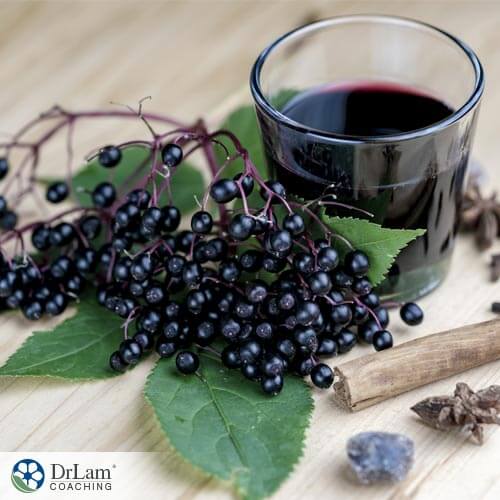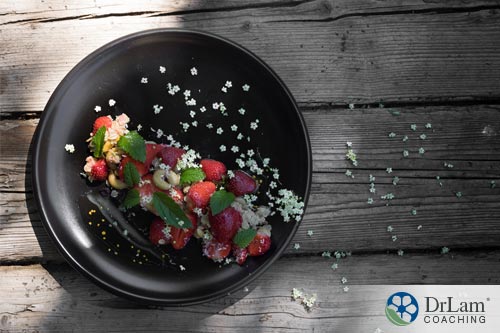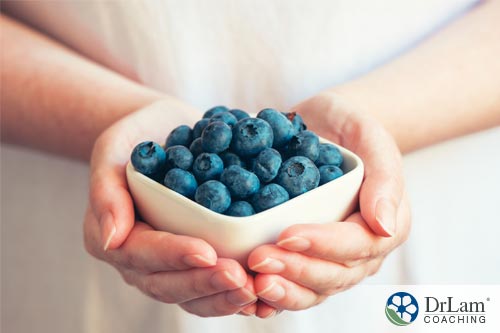 The cold and flu have become so prevalent that they now actually have an entire season dedicated to themselves. When it comes to the common cold, there is no vaccine or fast fix. Most of us are told to just ride it out. But elderberries can reduce the symptoms of many viruses, especially those that induce upper respiratory infections. They can also prevent and shorten herpes outbreaks and decrease pain and inflammation. Elderberries are one of the most commonly used medicinal plants on Earth, and they are also considered one of the most powerful for preventing viral infections.
The cold and flu have become so prevalent that they now actually have an entire season dedicated to themselves. When it comes to the common cold, there is no vaccine or fast fix. Most of us are told to just ride it out. But elderberries can reduce the symptoms of many viruses, especially those that induce upper respiratory infections. They can also prevent and shorten herpes outbreaks and decrease pain and inflammation. Elderberries are one of the most commonly used medicinal plants on Earth, and they are also considered one of the most powerful for preventing viral infections.
Although time is a great way to measure the effectiveness of elderberries since they have been used medicinally dating back to ancient times, there is also great scientific research to back up their immune building and antiviral abilities.
In one study, lead by Israeli virologist Dr. Madeleine Mumcuoblu, 93% of the participants who were given elderberry reported a significant improvement in their influenza symptoms within two days of starting treatment in comparison to the double-blinded placebo group which reported seeing improvements in six days.
In another placebo-controlled study from Norway, researchers gave double-blinded participants either an elderberry syrup or a placebo-based syrup. Patients who were given the syrup of elderberries reported improved flu-like symptoms within four days. In addition, the patients who received the elderberry syrup were also found to have taken fewer over the counter medications.
Data also shows that people who take elderberries have higher levels of antibodies available to fight against the influenza virus and other viral ailments. In this way, the plant can not only fight infections but help prevent them.
The elderberry has many properties that make it a healthy choice for wellness, but the primary mechanism that makes it antiviral is the hemagglutinin protein. This protein can stop a virus’s ability to replicate and penetrate cell walls, preventing a virus from causing an infection to take over the body. If elderberries are taken after the infection has already manifested, the virus is kept from spreading and the duration of symptoms is reduced.
 Not only do elderberries fight cold and flu symptoms, but they are also nutritious and have a number of other known health benefits. Elderberries are a very low calorie and high antioxidant food and contain many more nutritional benefits.
Not only do elderberries fight cold and flu symptoms, but they are also nutritious and have a number of other known health benefits. Elderberries are a very low calorie and high antioxidant food and contain many more nutritional benefits.
One hundred grams of the fresh berries contain less than 1 gram of fat, 18.4 grams of good carbs, and 73 energizing calories. In addition, they have:
The elderberry is extremely high in antioxidants and contains some of the most effective antioxidants in the berry family. The exact composition of the elderberry depends on a few factors including the environment in which it is grown, climatic conditions, the variety of the plant, and the ripeness of the berry when harvested. Therefore the nutritional composition often varies. Also, the flowers can contain stronger compounds than the berries.
How the elderberry is processed, whether it is juiced, heated, or extracted, can also affect the antioxidant activity. It is beneficial to take notice of what type of elderberry you are consuming. Products such as teas, syrups, juices, and jams may have reduced benefits depending on how they were made and stored.
Elderberries have been known to have a positive impact on cardiovascular health. Elderberry juice can reduce cholesterol, decrease the level of fat in the blood, and lower the risk for heart disease. However, the majority of testing has been done on lab rats, and additional testing on humans is still needed.
The berry may also reduce uric acid and blood sugar levels. High levels of uric acid have been linked to poor heart health and an increase in blood pressure. High blood sugar levels are also connected to type 2 diabetes, a major precursor for heart and vascular diseases.
The elderberry has been used for centuries for its medicinal properties. Although there are limited scientific studies supporting these uses, many people still swear by the use of elderberry for the following:
Although most of the testing on the elderberry has been done on lab rats, the test of time suggests that elderberry may be quite helpful for increasing the immune system or fighting off viruses such as the common cold or flu.
Elderberry is safe for most people with minimal side effects. However, caution should be taken with consuming the seed, as it has been linked to nausea and vomiting when taken in high doses. Commercial powders may contain the seed. Eating the raw berries, bark, and leaves of the plant have been known to cause stomach problems and even toxicity due to trace amounts of a substance known as lectin.
The elderberry plant also contains 3mg of cyanogenic glycosides for every 100 grams of fresh berries. This is only 3% of an estimated fatal dose, but this compound is toxic if taken improperly or eaten in very large amounts. Commercial preparations and cooked berries do not contain cyanide.
Due to the lack of testing, elderberries are not recommended for children under 18, or lactating or pregnant women.
During cold and flu season, it is a good idea to have elderberries stocked for daily use for preventing colds or to take at the first sign of illness. If you do get sick, you can increase the dosage within safe perimeters.
 There are many ways to take elderberry. The simplest way to take elderberry may be to try one of the several varieties of syrup at your local health store; Sambucol is one brand with studies backing its efficacy.
There are many ways to take elderberry. The simplest way to take elderberry may be to try one of the several varieties of syrup at your local health store; Sambucol is one brand with studies backing its efficacy.
You can also purchase dried berries in bulk and make your own syrup at home. It is a fairly simple process involving boiling the berries down and adding honey. It’s best to make your purchases in early fall, however, as supplies tend to run out and get more expensive as flu season wears on.
Elderberries have a sweet, grape-like taste so you can also purchase fresh berries and add them to foods.
The syrup tastes great on its own, but there are many more interesting ways to add it to your diet. Here are some great ideas:
The options for using elderberries are endless! You can mix the syrup into plain yogurt, oatmeal, or with granola, or use it in place of honey or maple syrup for your pancake or waffles! A little creativity in the kitchen is all that is needed.
Elderberries are even beneficial for Adrenal Fatigue Syndrome (AFS), a stress-induced ailment that affects the entire body starting with the adrenals. If left unmanaged, adrenal fatigue can cause debilitating symptoms that affect the entire body. It is important to maintain a healthy lifestyle for recovery, and including elderberries in an AFS diet could help alleviate some serious symptoms such as inflammation and decreased immune function.
 Due to the potency of the berry and the known cautions, it is best to speak to your health care provider or nutritionist prior to beginning any new health regiments or supplements. Those with AFS can have paradoxical reactions or develop new allergies, so it is best to be cautious with any new food or supplement.
Due to the potency of the berry and the known cautions, it is best to speak to your health care provider or nutritionist prior to beginning any new health regiments or supplements. Those with AFS can have paradoxical reactions or develop new allergies, so it is best to be cautious with any new food or supplement.
While the berry has been associated with a great many health benefits, is full of nutrients, and has proven to be a potent fighter against the flu and cold virus, it is important to remember most testing has not been done on humans, and there are some side effects to its consumption. But, all in all, elderberries are a great addition to your home medicine cabinet.
© Copyright 2019 Michael Lam, M.D. All Rights Reserved.
Elderberries are very potent and must be used correctly to avoid any discomfort such as nausea or vomiting. They are generally safe for everyone, but they have not had much human testing, so they are not recommended for infants or pregnant or nursing mothers.
